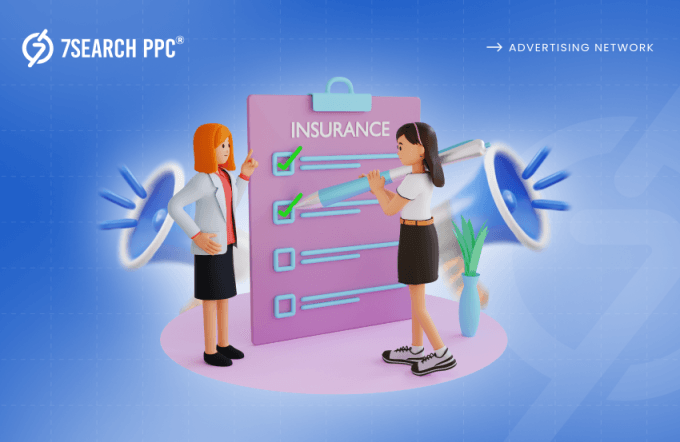E-commerce is a booming sector of the economy in the current digital era. With more and more people relying on online shopping for their daily needs, it’s no surprise that businesses are turning to e-commerce platforms to reach their target audience. However, with so many competitors vying for attention in this space, how can your business stand out?
The answer lies in effective e-commerce advertising strategies! In this blog post, we’ll explore how leveraging the power of targeted ads can help take your business to greater heights and drive sales success. So buckle up and get ready to experience the benefits of e-commerce advertising firsthand!
What Is E-Commerce Advertising?
To promote your e-commerce business, you need to engage in e-commerce advertising. This type of advertising can help you reach potential customers who are looking for products or services that you offer.
There are a variety of e-commerce advertising platforms that you can use to reach your target audience. The most well-liked options are Facebook Ads, Bing Ads, and Google AdWords. Each platform has its own set of features and capabilities that you can use to create targeted ad campaigns.
When creating an e-commerce advertising campaign, it is important to consider your goals and objectives. What objectives do you have for your advertising campaign? Are you looking to generate leads? Drive traffic to your website? Make sales? Once you know what you want to achieve, you can create ad campaigns that are designed to meet your specific goals.
E-commerce advertising can be a great way to promote your business and drive sales. However, it is important to remember that this type of marketing requires ongoing effort and management. You will need to continually monitor your campaigns and make adjustments as needed to ensure that they are effective.
Pros And Cons Of E-commerce Advertising
As the world continues to move online, businesses are increasingly looking to eCommerce advertising to reach their target audiences. There are several advantages to using e-commerce advertising, including the ability to target consumers more effectively, the potential for lower costs, and the convenience of being able to purchase ads on a variety of platforms.
However, there are also some potential drawbacks to consider, such as the need for a strong online presence to make e-commerce advertising effective and the possibility that consumers may be turned off by intrusive or irrelevant ads. E-commerce advertising can be a powerful tool for businesses if used correctly, but it is important to weigh the pros and cons carefully before deciding whether or not it is right for your business.
Strategies For Effective E-commerce Advertising
Many strategies can be effective for e-commerce advertising. The most important part of any e-commerce advertising strategy is to identify the target audience and figure out where they spend the majority of their time online. Once the target audience has been identified, it is important to create ads that are relevant to their interests and needs.
One way to reach the target audience is through Google AdWords. AdWords allows businesses to place ads on Google.com and millions of other websites across the web. This way, businesses can specifically target their ads to users who are already interested in what they have to offer. Another way to reach the target audience is through Facebook Ads. Businesses may use Facebook to tailor ads to particular audiences based on interests, demographics, and even location.
Once the target audience has been reached, it is important to track the results of the e-commerce advertising campaign. Google Analytics can be used to track clicks, impressions, and conversions from e-commerce ads. Facebook also provides insights into how well ads are performing. By tracking the results of the campaign, businesses can determine which strategies are working and which need to be tweaked to achieve better results.

Utilizing Social Media For E-commerce Advertising
Social media has become one of the most powerful tools for businesses to advertise their products and services. Utilizing social media for eCommerce advertising can help businesses reach a larger audience, connect with potential customers, and create a more engaging shopping experience.
When it comes to using social media for eCommerce advertising, businesses need to consider their goals and objectives. What do they want to achieve through their social media campaigns? Once they have defined their goals, they can start creating relevant and engaging content that will resonate with their target audience.
It’s important to remember that social media is all about building relationships. When businesses take the time to connect with their followers and provide them with valuable content, they are more likely to develop a loyal following that will support and promote their products or services.
Measuring The Success Of Your E-commerce Ads
There are a variety of ways to measure the success of your e-commerce ads. One way is to track the number of clicks or conversions that your ad generates. Another way is to track the amount of traffic that your ad directs to your website.
Alternatives To Traditional E-Commerce Advertising
There are several alternatives to traditional e-commerce advertising, which can be just as effective in promoting your business. To get you started, consider these ideas:
Social Media Marketing
Utilizing social media platforms such as Facebook, Twitter, and LinkedIn can help you reach a larger audience with your e-commerce advertising messages.
Pay-Per-Click Advertising
Using platforms like Google AdWords or Bing Ads, you can place ads on search engine results pages and pay only when someone clicks on your ad.
Affiliate Marketing
Working with other websites or influencers in your industry to promote your products or services can be a great way to reach new customers.
Email Marketing
Sending targeted emails to potential or existing customers can be an effective way to promote your e-commerce business.
Content Marketing
Creating and sharing helpful, informative, and engaging content is a great way to attract attention and build interest in your products or services.
Conclusion
E-commerce advertisements can be a great way to help your business grow and reach new customers. From leveraging social media networks to setting up an efficient ad campaign, the opportunities are vast for businesses that want to excel in this digital age.
With careful planning, you can make sure that your e-commerce advertising strategy is successful and effective in helping you achieve your goals. Don’t forget to also use analytics tools so that you monitor the success of your campaigns and adjust where necessary!
Frequently Asked Questions (FAQs)
What is the best advertising for E-Commerce?
Ans. The most effective advertising for E-commerce often involves a strategic blend of PPC (Pay-Per-Click), Targeted social media campaigns, and search engine optimization (SEO) to maximize online visibility and engage potential customers.
How do you advertise E-commerce?
Ans. To advertise e-commerce using 7Search PPC, create compelling ad copy with optimized landing pages for conversions, and leverage 7Search’s PPC targeting options to reach a specific audience, maximizing the effectiveness of your pay-per-click campaign.
Is advertising a function of E-commerce?
Ans. Yes, advertising is a crucial function of e-commerce, serving to increase brand visibility, attract potential customers, and drive sales. Effectively executed advertising strategies play a pivotal role in the success and growth of e-commerce businesses.


















